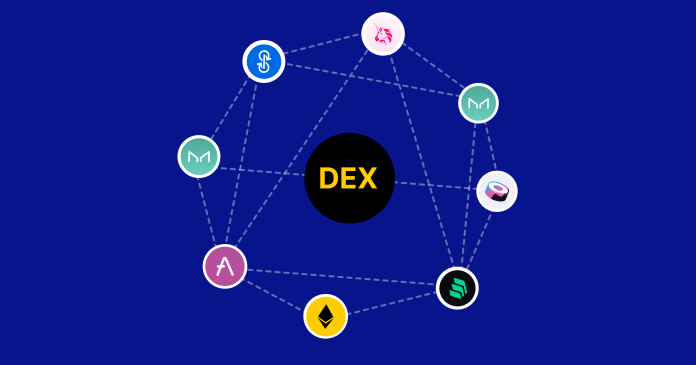A decentralized exchange, commonly referred to as a DEX, is a type of cryptocurrency exchange that operates without a central authority or intermediary. Unlike traditional exchanges that rely on a central entity to facilitate trading, DEXs allow users to trade directly with each other on a peer-to-peer basis. This is made possible through the use of smart contracts and blockchain technology.
How do DEXs work?
DEXs operate on a decentralized network of nodes, where each node is responsible for validating and recording transactions. When a user wants to make a trade on a DEX, they connect their digital wallet to the exchange and submit a buy or sell order. These orders are then broadcasted to the network, where they are matched with corresponding orders from other users. Once a match is found, the trade is executed and recorded on the blockchain.
What are potential benefits of using a DEX?
There are several potential benefits of using a DEX, including:
1. Security: DEXs eliminate the need for users to deposit their funds into the exchange’s wallet, reducing the risk of theft or hacking.
2. Privacy: DEXs often do not require users to undergo extensive identity verification processes, allowing for greater privacy when trading cryptocurrencies.
3. Control: Users have full control over their funds and can execute trades without relying on a central authority.
4. Access: DEXs can provide access to a wide range of digital assets that may not be available on traditional exchanges.
5. Transparency: All transactions on a DEX are recorded on the blockchain, providing a high level of transparency and auditability.
What are some potential downsides?
While DEXs offer several advantages, there are also some potential downsides to consider:
1. Liquidity: DEXs may have lower liquidity compared to centralized exchanges, which can result in higher price volatility and less favorable trading conditions.
2. User experience: The user interface and trading experience on DEXs may not be as user-friendly as those offered by centralized exchanges.
3. Speed: Transaction speeds on DEXs can be slower due to the decentralized nature of the network and the need for consensus among nodes.
4. Regulation: DEXs operate in a regulatory grey area in many jurisdictions, which can create uncertainty for users and developers.
How do you interact with a DEX?
Interacting with a DEX typically involves the following steps:
1. Choose a DEX: There are several DEXs available, each with its own unique features and supported assets. Users should research and choose a DEX that meets their specific trading needs.
2. Connect your wallet: Users need to connect their digital wallet to the DEX in order to deposit and withdraw funds.
3. Place an order: Users can place buy or sell orders for the desired cryptocurrency pairs on the DEX’s trading interface.
4. Execute the trade: Once a matching order is found, the trade is executed automatically through the use of smart contracts.
5. Withdraw funds: After completing a trade, users can withdraw their funds back to their digital wallet.
How do DEX fees work?
DEXs typically charge fees for trades and other transactions on the platform. These fees are used to incentivize network validators and maintain the infrastructure of the exchange. The fee structure can vary between different DEXs but commonly includes:
1. Trading fees: Users are charged a small percentage of the trade amount as a fee for executing orders on the platform.
2. Gas fees: Since DEXs operate on blockchain networks, users may need to pay gas fees to cover the cost of transaction processing and validation.
3. Withdrawal fees: DEXs may charge a fee for withdrawing funds from the platform back to the user’s digital wallet.
It’s important for users to carefully review the fee structure of a DEX before engaging in trading activities to ensure they understand the costs involved.
In conclusion, decentralized exchanges offer a compelling alternative to traditional centralized exchanges by providing enhanced security, privacy, and control over digital assets. While there are some potential drawbacks such as liquidity and user experience, the continued development of DEX technology holds promise for addressing these challenges in the future. As with any financial platform, it’s important for users to conduct thorough research and exercise caution when interacting with decentralized exchanges.
